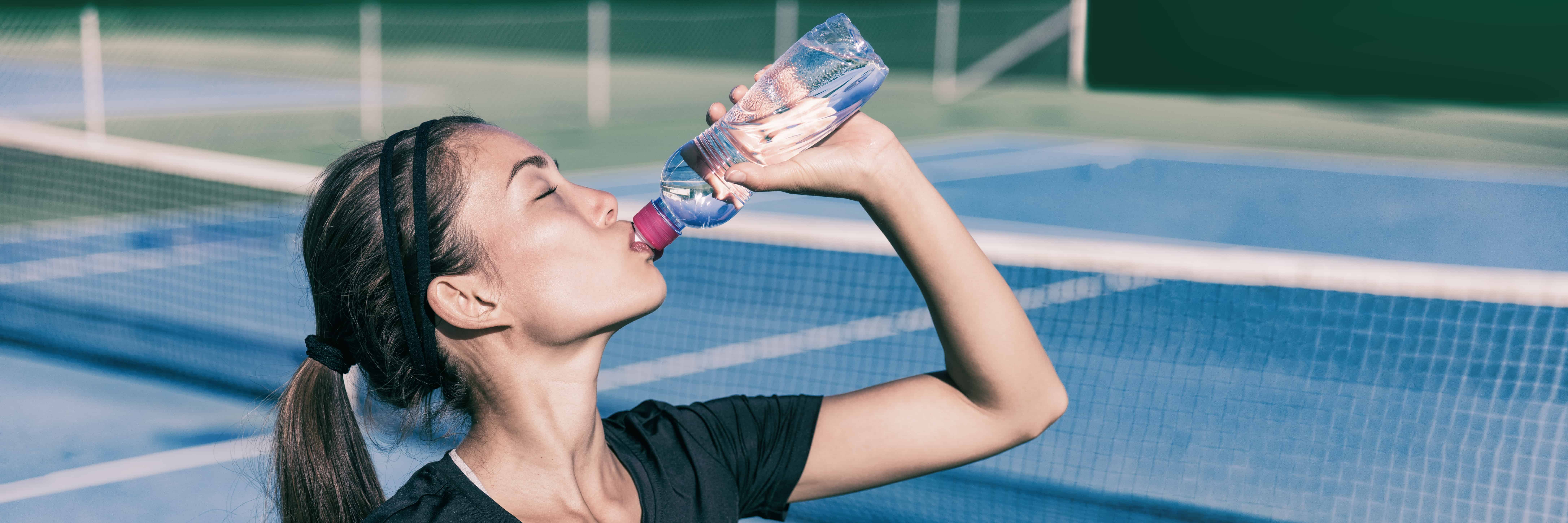The USTA National Campus is home to a plethora of medical and health experts, supplied in partnership with Nemours Children’s Health System and the Andrews Institute for Orthopedics & Sports Medicine, who work with the elite athletes who train with USTA Player Development at the USTA National Campus.

The doctors and trainers provided via Nemours and the Andrews Institute provide world class athletic medicine and athletic training for the USTA Player Development athletes, including the American professionals who train at the USTA National Campus, as well as top juniors. Beyond the medical and athletic training services, Nemours also provides nutrition consulting to ensure the elite athletes are performing at peak levels.
In addition to their work with USTA Player Development, the medical staff ensures highly trained athletic trainers are available for each of the more than 100 events and daily programming held at the USTA National Campus, providing medical treatment and insight when needed.
June marks the beginning of summer, and for residents of Lake Nona, that means bouts of extreme heat and humidity. Two of the USTA National Campus’ experts, Director of Athletic Medicine Ed Ryan and nutrition consultant Tara Collingwood, who are employees of the Andrews Institute and Nemours, respectively, weighed in on how athletes can best deal with the summer weather in Central Florida.
Q: What are some tips you would give to someone who’s outside being active in the Florida summer months?
Ed Ryan: With regard to fluids, there’s an easy way to keep track of fluid loss and that’s to weigh yourself. Weigh yourself before you work out, and then weigh yourself after. Any difference between the pre-activity and post-activity weight would be attributed to fluid loss.
Most people would say that you should replace that fluid before you work out again, but because you lose so much fluid in the way that our body works, just replacing one-for-one isn’t adequate. We typically say that you have to replace one-and-a-half times as much fluid. For example, if you lose one pound, that’s equivalent to about a 16-ounce bottle, so in order to replace that pound of weight loss, you’d have to replace it with 24 ounces of fluid.
Q: Are there any specific foods or food groups that particularly help maintain healthy hydration levels?
Tara Collingwood: Along with fluids, we also have electrolytes. Electrolytes are going to be the thing you lose most along with fluids, the primary one being sodium. The American diet is pretty high in sodium, so I wouldn’t say load up on sodium as a recreational athlete. Two other electrolytes you lose in your sweat are potassium and magnesium.
So with that being said, you should definitely be eating fruits and vegetables. When you’re talking about potassium and magnesium, fruits, vegetables, nuts and seeds, and whole grains are going to be your best sources.
I would say focus on the sodium. Don’t go crazy on it, but if you’re going to be out there for a long time, sodium is important during exercise. And then try to eat a diet high in fruits and vegetables, which you should do all year round but especially during the summer months.
Q: What are some symptoms of heat exhaustion that you should be on the lookout for?
Ed Ryan: Heat exhaustion is really when someone starts to feel fatigued, they are sweating profusely, they may start to cramp, feel weakness, really just total body fatigue, and people can sometimes faint or pass out.
In the management of all types of heat illness, it’s important to get someone into a cool environment. Try to get indoors, or if you can’t get indoors, try and cool your body as quickly as possible. Often times we put ice on someone’s neck or under their arms. All of those types of heat exhaustion are typically linked to the state of hydration.
When dehydration gets too severe, that’s when we move into heat stroke, and that’s when people stop sweating. Their temperature starts to skyrocket, and rather than looking pale as they do with heat exhaustion, they look red. And that’s a medical emergency.
It used to always be that we would say to go to the hospital as soon as you can, but now the best practices are to try to cool somebody and lower their body temperature because their core temperature has skyrocketed, and that can be very dangerous and potentially fatal.
Q: What would you recommend for someone suffering from dehydration?
Tara Collingwood: Definitely sports drinks. Whether someone is suffering from dehydration, low electrolytes or low blood sugar, sports drinks hit all three of those. I’m a huge fan of sports drinks, especially during the summer months.
And knowing that you’re going out in the heat, whether you’re playing tennis or golf, running, soccer, etc., hydrating the day before, the morning of, is important. You can hydrate your body and try to get those water stores as high as possible even before you’re outside.

